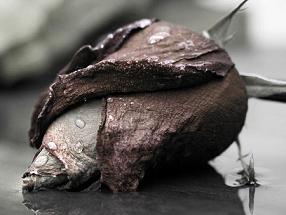|

The One Certainty
By Christina Rossetti
Vanity of vanities, the Preacher saith,
All things are vanity. The eye and ear
Cannot be filled with what they see and hear.
Like early dew, or like the sudden breath
Of wind, or like the grass that withereth,
Is man, tossed to and fro by hope and fear:
So little joy hath he, so little cheer,
Till all things end in the long dust of death.
To-day is still the same as yesterday,
To-morrow also even as one of them;
And there is nothing new under the sun:
Until the ancient race of Time be run,
The old thorns shall grow out of the old stem,
And morning shall be cold and twilight grey.
Interpretations
Zong:
In this
poem, Christina Rossetti is talking about death. When the preacher says that “All things are vanity,” he’s
trying to say that there’s not much that matters. Like how there is life, there is death. The line representing life
is “Like early dew, or like the sudden breath Of wind, or like the grass that withereth,” the eary dew, sudden
breath of wind, and withering of grass serving as a metaphor to the joy that life serves itself in. Then there’s death,
“Is man, tossed to and fro by hope and fear: So little joy hath he, so little cheer, Till all things end in the long
dust of death.” In the last line of the poem, where the “old thorns shall grow out of the old stem, And morning
shall be cold and twilight grey,” this stanza represents a beautiful, inevitable death.
Kaying:
"They"
are the believers who rely on "The One Certainty", Christ. The speaker is the Preacher and he shares that the believers become
"tossed to and fro by hope and fear" because they encounter obstacles that believing what is seen and heard is not what it
may seem. This certain believer, such as the speaker, hopes that true happiness will be found after "death". The speaker yearns
for happiness dreading all days, "To-day
is still the same as yesterday,
To-morrow also even as one of them." Religiously speaking,
the thorns represent the old life of the believers who will eventually reach a happy life after death. Life's purpose
is to live for the one certainty yet til' death "morning shall be cold and twilight grey.".
Chee:
In this poem that Christina Rossetti wrote
talks about a preacher who is preaching about life. “All things are vanity. The eye and ear.” This means that
life is like your eyes and your ears. They can only hear and see what you do just like the things around you regardless if
they are human like you are not, but they live and breathe like you too. You can visual what she mean in the line “Like
early dew, or like the sudden breath.” In life you are living day by day not knowing when you will die. Things can be
like good or bad today, but the very next day it can be the same or different from the day before is what is meant in “To-morrow
also even as one of them.” The weather can be a symbol of how one feels
now about life, but is there “certainty” about what it can actually mean to you. This was what I think Christina
Rossetti was trying to point out in this poem.
|

